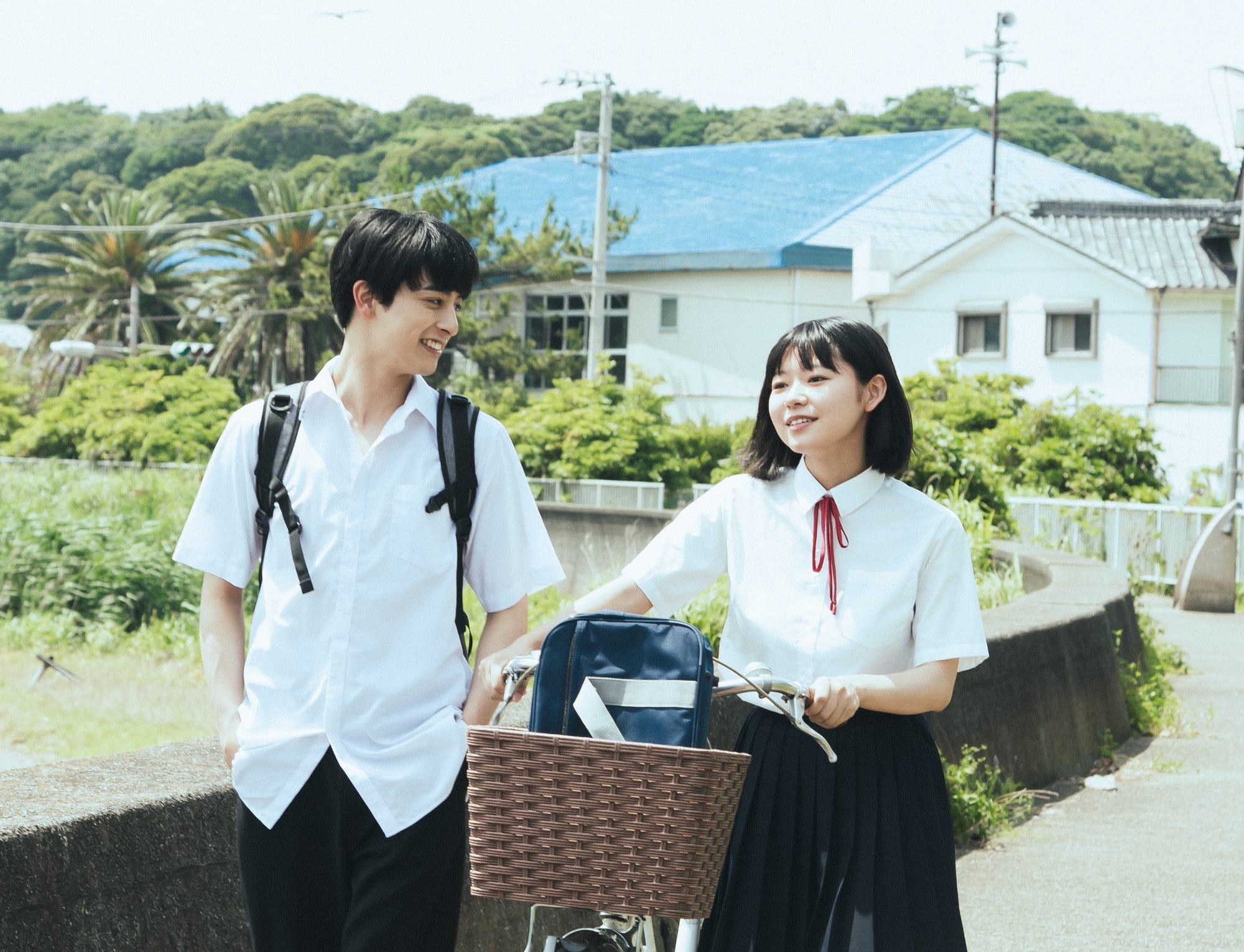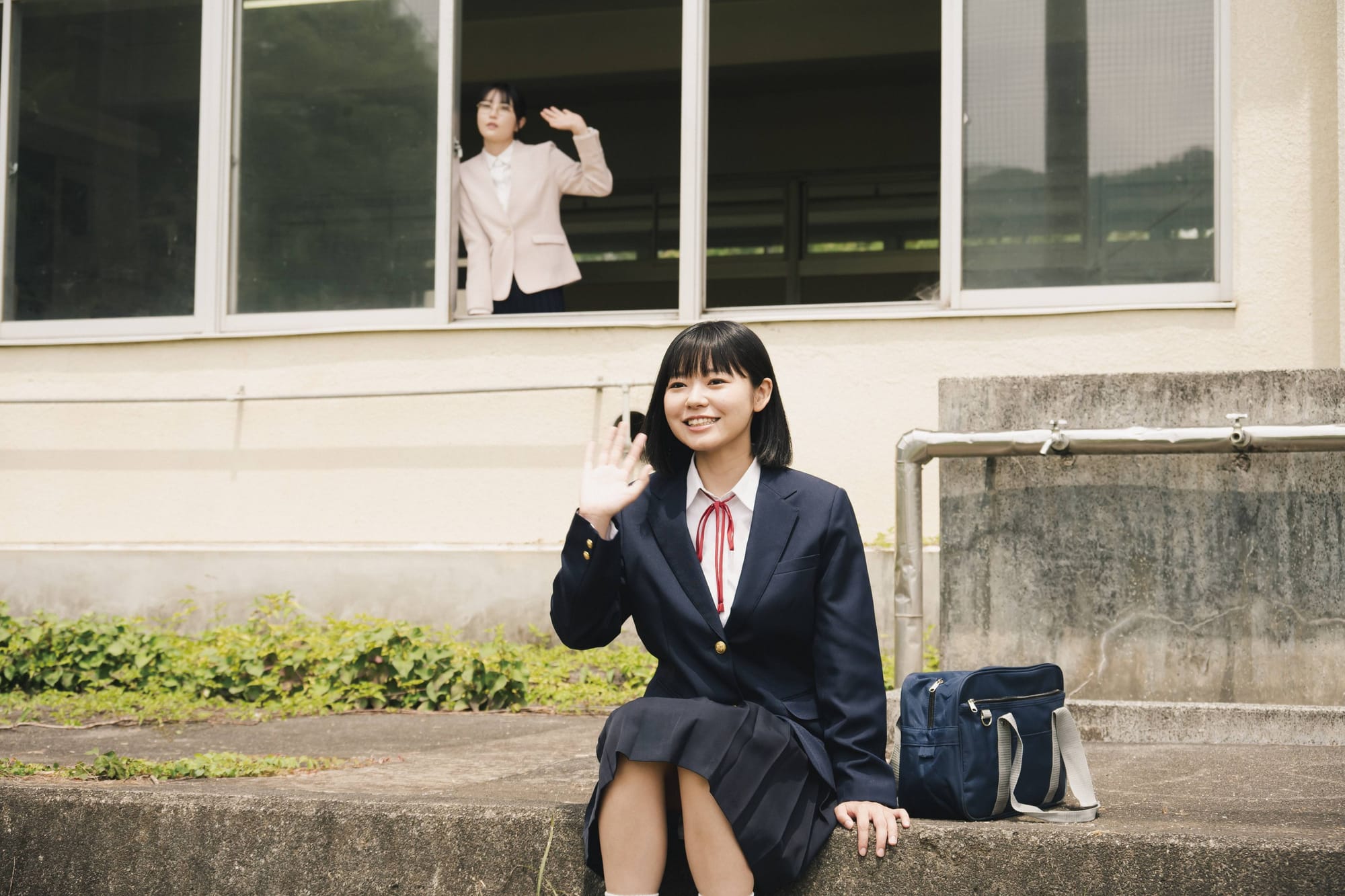
Juvenile is the way I would describe the raunchy comedic tones of Young & Fine, in the most complimentary sense of the word. In essence a story of a horny teen who can’t wait to have sex, there’s a surprising heart at the core of this love triangle, the root of their sex-fueled antics reveals both immaturity and insecurity that’s rarely explored this frankly.
The film adapts the manga of the same name by Naoki Yamamoto and is somewhat of a departure from the norm for director Toshiya Kominami, whose directorial career to this point has mostly consisted of niche genre flicks and pink films. Katsuhiko Haino (Taisuke Niihara) is a third-year high school student dating his classmate Reiko Arai (Yuki Araho), and as the summer begins to heat up, so does their relationship. Katsuhiko is determined to have sex, though despite that and their comfort and love for one another Reiko continues to stonewall him, or changes her mind any time things get more intimate. One night after another failed attempt, they bump into an older woman covered in dirt who wanders out of the woods nearby. Turns out, she fell in there while searching for their home, as her mother has rented out the spare room Katsuhiko’s older brother used to use prior to moving out.
If that didn’t make things complicated enough, Izawa Manabu (Yuka Kouri, known for her role as Lady Kiku in Shogun amongst others) is also their new teacher, though she certainly lacks confidence and many of the qualities you’d expect from a teacher. She mumbles, her anxiety has turned her into an alcoholic who even drinks at school, and she lacks the typical barrier between student and teacher due to her own immaturity and not-so-positive memories of being a student at the same school. Katsuhiko and Izawa begin to get a bit too close considering their age and power dynamics, and it doesn’t go unnoticed in the eyes of Reiko.
With a story told from the view of Katsuhiko, the film isn’t shy to embrace its immature view of sex as a milestone and bragging point for the pubescent teenage male. Young & Fine works because it balances these juvenile sex-addled antics with introspection and empathy for the turbulence of navigating the uncomfortable years between teenage and adulthood. The goading of students that the pair are "totally doing it" paired with the fumbling reality in the bedroom and the brutal honesty of Reiko’s fear about losing her first time and not being perfect makes the pair’s uncomfortable behavior sympathetic and relatable, rather than merely a distracting piece of titillation. It allows for a contrast between the single-minded desire of Katsuhiko and immaturity of Izawa to be put into a context that helps the film dive thematically deeper into what it means to mature and "come of age."

Desire, frustration and trauma perform a delicate balance in the relationships of this trio, but what becomes clear is the film is in no way seeking to pit these three in conflict with one another for the object of their love. Izawa’s inability to move on from her own school experiences despite being an adult leading the next generation leaves her the instigator of much of the tension of this relationship, almost-unwittingly being forward with the younger student because she views herself as no older than he is. She’s eager to get him drunk, and it barely matters if they fall asleep in the same bed, and scenes where he’s forced to wake up his oversleeping half-naked teacher is more a sign that her life’s a mess, but it doesn’t mean his eyes aren’t fixating on the curves of her more mature body.
And of course this leaves Reiko jealous, but she doesn’t know how to deal with her own insecurities and can’t really bring herself to hate the teacher. She feels guilt over her own fears for losing her virginity, a barrier she can’t overcome in a way that disappoints both of them. No one knows what they’re doing, and it makes the whole thing endearing, rather than leering or inappropriate. Instead of a fantasy, this is three people stumbling through their inability to grow up, and it’s hard not to support everyone, if just to give them a push to overcome their insecurities. Perhaps the three were meant to meet one another at this junction of their lives.

For all the premise might feel at home with the soft core works of the director’s prior films - and the sex scenes between the students do certainly feel at home in such a work, though the humorous framing, welcome respect for boundaries and male reciprocation for oral activities and the use of an intimacy co-ordinator ensure these scenes are tasteful, if at-times gratuitous - it’s the more somber dramatic turns and impressive performances from both newcomers and experienced faces alike that sell this film as something greater than the sum of its parts. While Katsuhiko’s hormonal desires mask someone uncertain of the future and witnessing the people around him move forward without him, it’s actually Izawa’s turn and growth that ties this story together.
Despite being the oldest, her state is almost the most pitiable of them all. As an acting performance its a true feat, Kouri truly immersing herself into the role of a mumbling, listless, somewhat pathetic role model of a teacher. She’s an enabler of Katsuhiko’s worst antics, which is what lets this inappropriate relationship get as close to crossing the line as it does. Yet there’s a sense that, beyond the unspoken romantic tension that builds amidst this taboo of a connection, the pair serve as a mirror for one another to reveal the worst aspects of themselves, and what they need to keep and throw away.

The film certainly shows the strain of its low budget. Scenes often have an amateurish look or jarring editing choices that come down mostly to a limit in time and budget to ensure complete coverage on a scene, or to spread the workload amongst a small staff. But does that matter when the writing, and the strength of the adaptation of the original 1990s manga updated to the modern day, uses the improper nature of the teacher-student relationship not as a sexual fantasy but a more profound lens into the difficulties of moving on.
Yet the strength of its writing and acting make up for these shortcomings for something both funny and heartfelt. It’s rough, sure, but it lingers precisely because it takes its problematic premise and uses it to confront both characters and audience alike with probing questions on the desire to be seen.
It’s honest and sincere. In both love and life, that means something.
Japanese Movie Spotlight is a monthly column highlighting new Japanese cinema releases. You can check out the full archive of the column over on Letterboxd.










